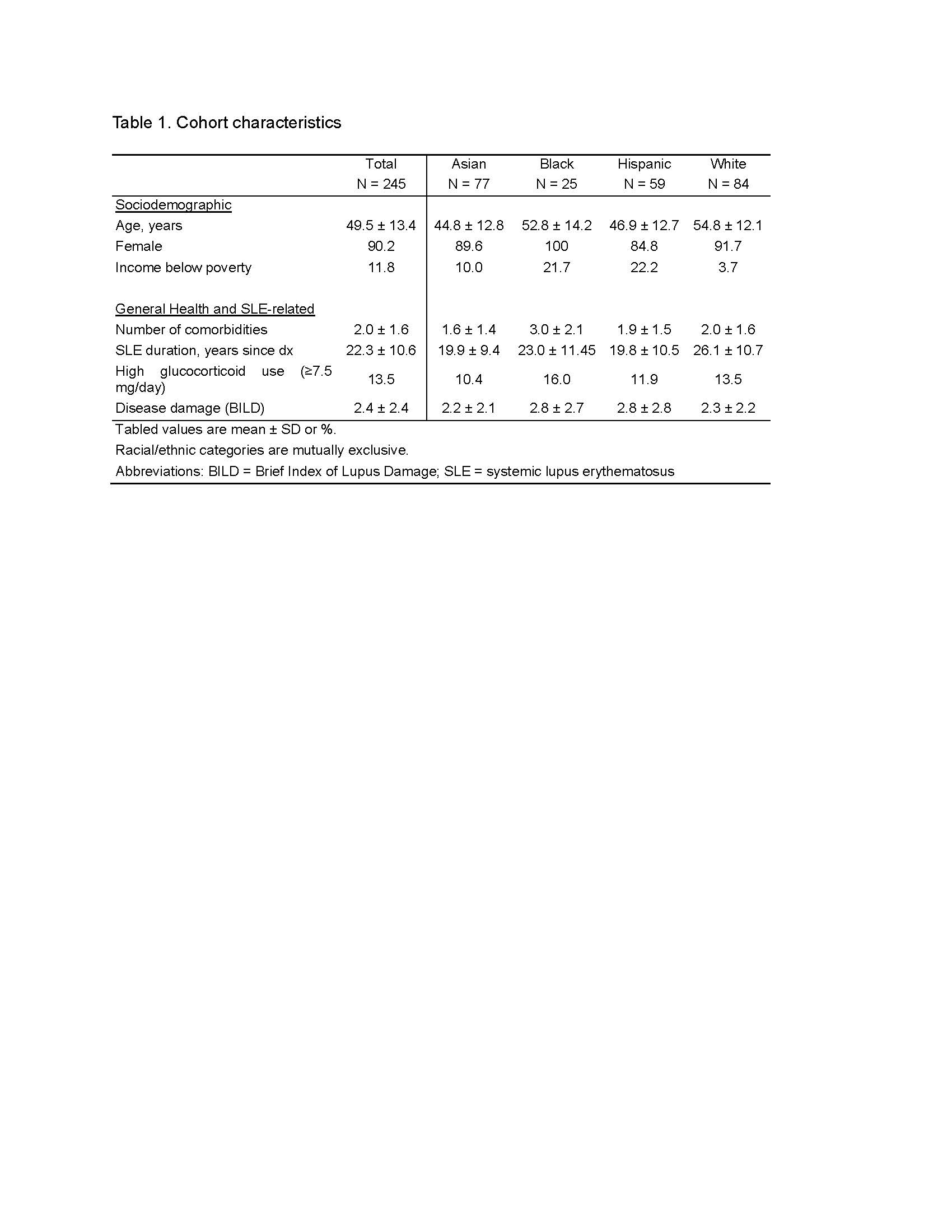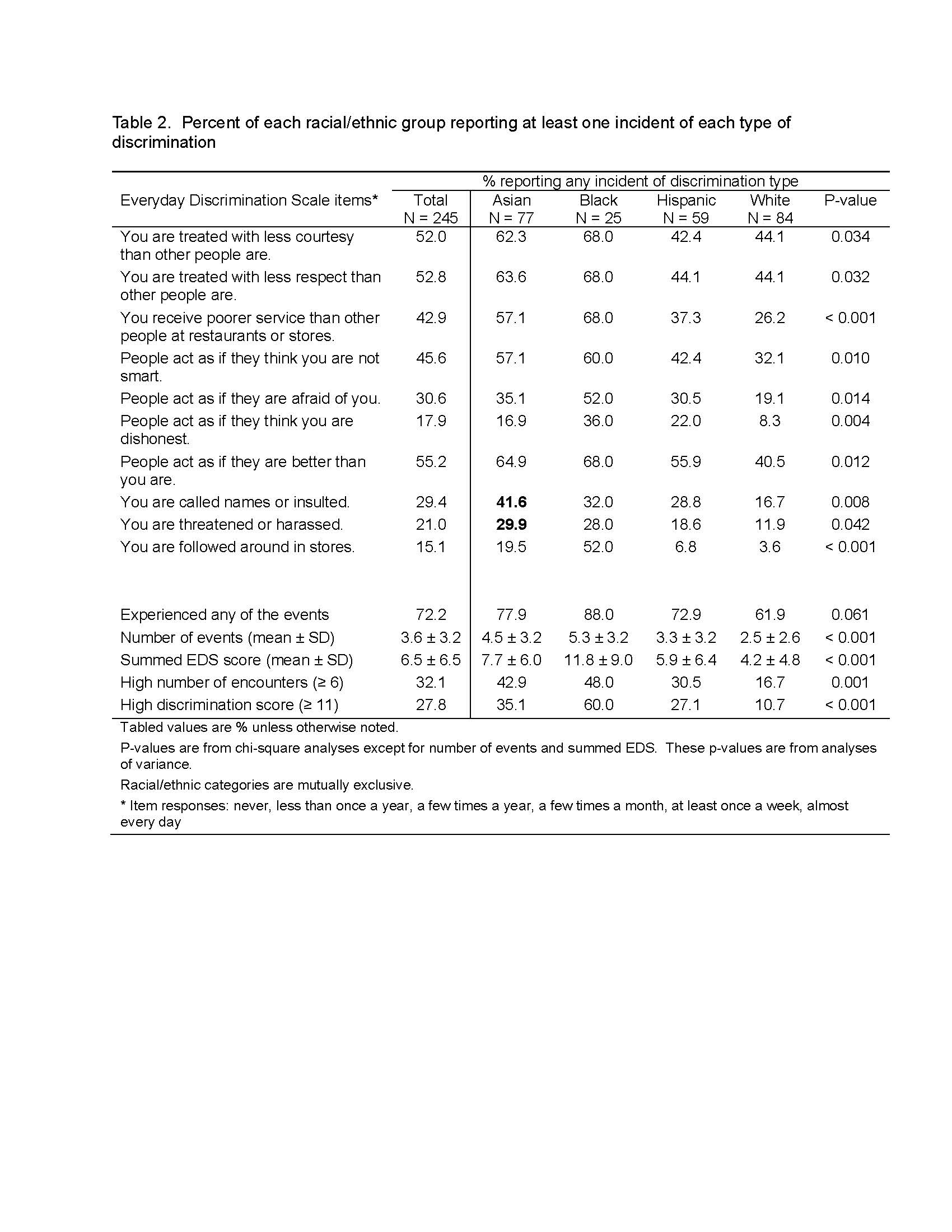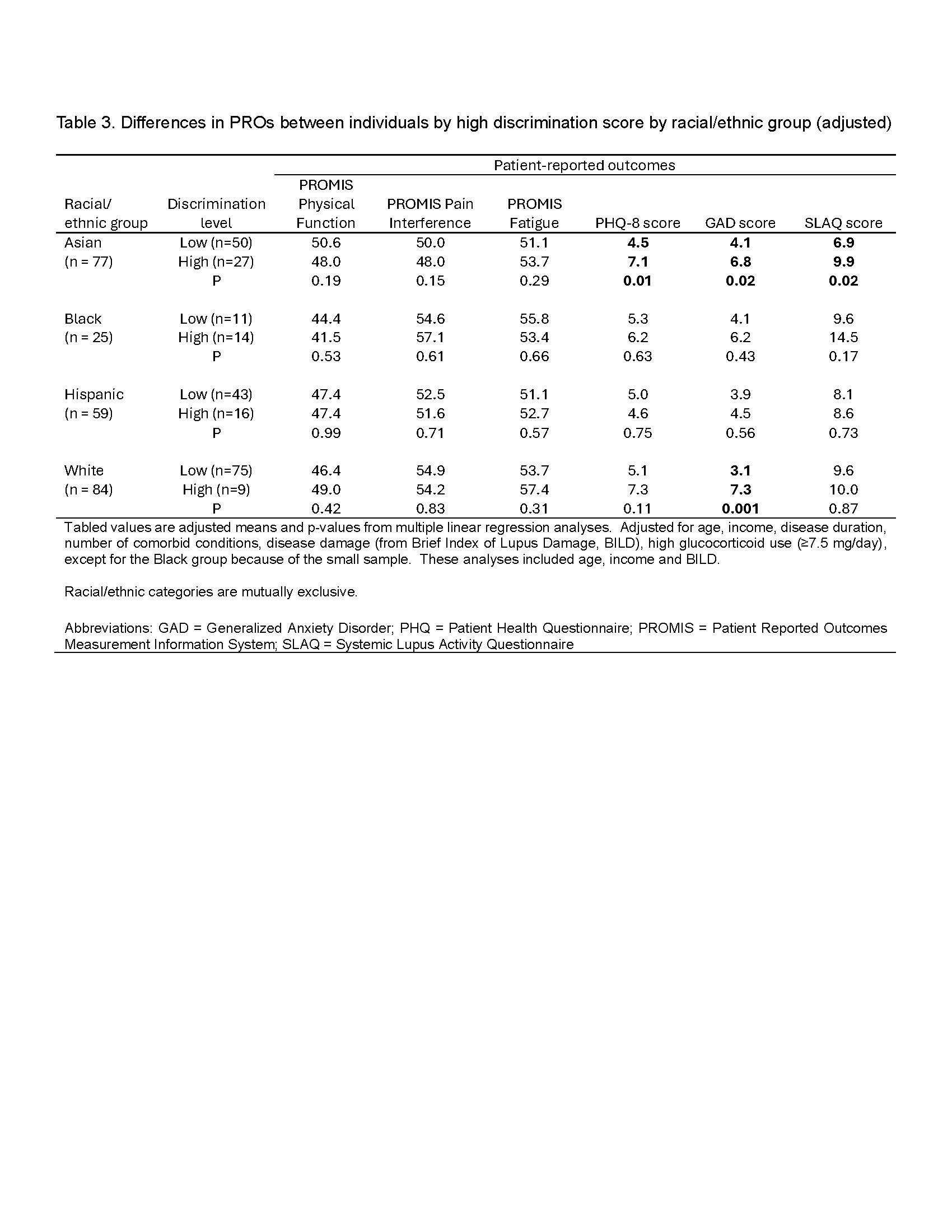Session Information
Session Type: Poster Session A
Session Time: 10:30AM-12:30PM
Background/Purpose: Discrimination experiences have been linked to poor outcomes among Black individuals with SLE.1 Among Asian adults in the general US population, discrimination has been associated with worse psychological and physical health outcomes.2 In spite of higher levels of severity among Asian adults with SLE,3 the impact of discrimination on outcomes in this group has not been examined. We examined the frequency of discrimination experiences and the association between high levels of reported discrimination experiences among Asian adults with SLE in the US and patient-reported outcomes (PROs).
Methods: Data were from Year 5 of the California Lupus Epidemiology Study (CLUES), a longitudinal cohort with rheumatologist-confirmed SLE. Discrimination experiences were measured with the Everyday Discrimination Scale (EDS), which consists of 10 items rated according to frequency of occurrence and scored 0 (never occurred) to 5 (occurs almost every day).4 PROs examined were PROMIS Physical Function, Pain Interference, and Fatigue; Patient Health Questionnaire (PHQ)-8 (depressive symptoms); Generalized Anxiety Disorder (GAD) questionnaire; and Systemic Lupus Activity Questionnaire (SLAQ, self-reported disease activity). EDS was scored by average item ratings and by tabulating any experience of each type of discrimination. High levels of discrimination were defined as the top quartile of summed EDS scores for the total sample. Characteristics were compared across groups by chi-square analyses and analyses of variance. Frequency of ever experiencing each type of discrimination was tabulated and compared among racial/ethnic groups with chi-square analyses. Multiple linear regression analyses compared PRO scores between those with high v. lower EDS scores by racial/ethnic group, adjusting for sociodemographic and SLE-related variables.
Results: Participant characteristics (n=245) are shown in Table 1. Experience of discrimination types varied from 15.1% (followed in stores) to 55.2% (people act as if they are better than you are) (Table 2). There were significant differences among racial/ethnic groups on the experience of each type of discrimination. Black participants had the highest discrimination scores. Asian participants reported the highest frequency of being called names and being threatened, the second highest frequency of experiencing 7 of the 8 other types of discrimination, and the second highest summed EDS score (7.7 ± 6.0). Among Asian participants, high discrimination scores were associated with significantly higher depression and anxiety scores and higher self-reported disease activity (Table 3).
Conclusion: Asian adults with SLE experienced substantial levels of discrimination, and in this group, high levels of discrimination were associated with worse mental health and higher self-reported SLE activity. These findings expand previous analyses showing the negative impact of discrimination on Black individuals with SLE and support further exploration of the prevalence and impact of discrimination as a chronic stressor.
1 Chae DH et al. AJPH 2015;105:2099
2 Gee GC et al. Epidemiol Rev 2009;31:130
3 DeQuattro K et al. Arthritis Care Res 2022;74:896
4 Williams DR. Soc Sci Med 2008;67:441
To cite this abstract in AMA style:
Katz P, Park J, Barbour K, Greenlund K, Dall'Era M, Yazdany J. Associations Between Discrimination Experiences and Patient-Reported Outcomes Among Asian Individuals with Systemic Lupus Erythematosus (SLE) [abstract]. Arthritis Rheumatol. 2024; 76 (suppl 9). https://acrabstracts.org/abstract/associations-between-discrimination-experiences-and-patient-reported-outcomes-among-asian-individuals-with-systemic-lupus-erythematosus-sle/. Accessed .« Back to ACR Convergence 2024
ACR Meeting Abstracts - https://acrabstracts.org/abstract/associations-between-discrimination-experiences-and-patient-reported-outcomes-among-asian-individuals-with-systemic-lupus-erythematosus-sle/



